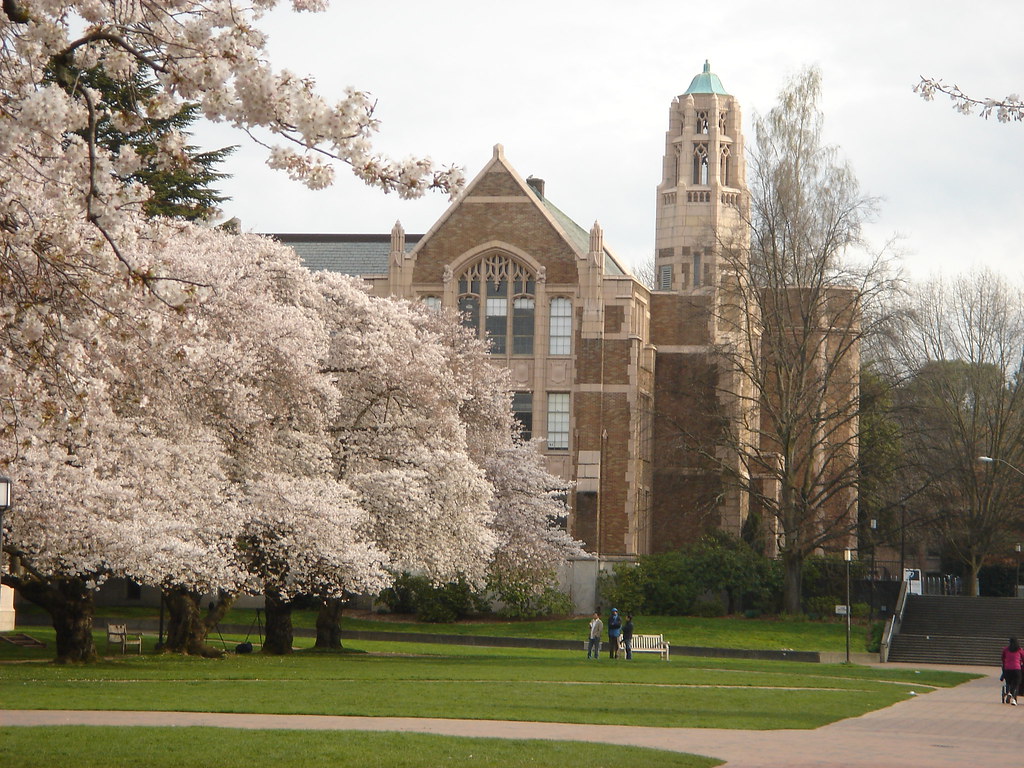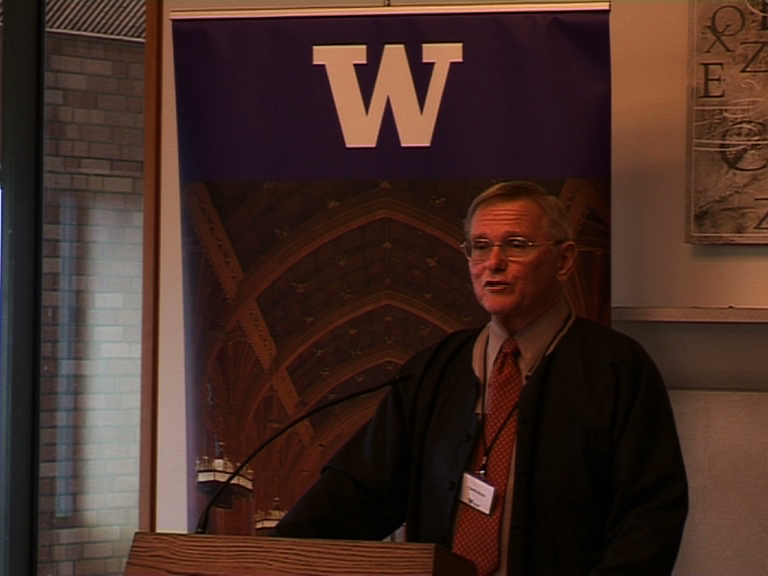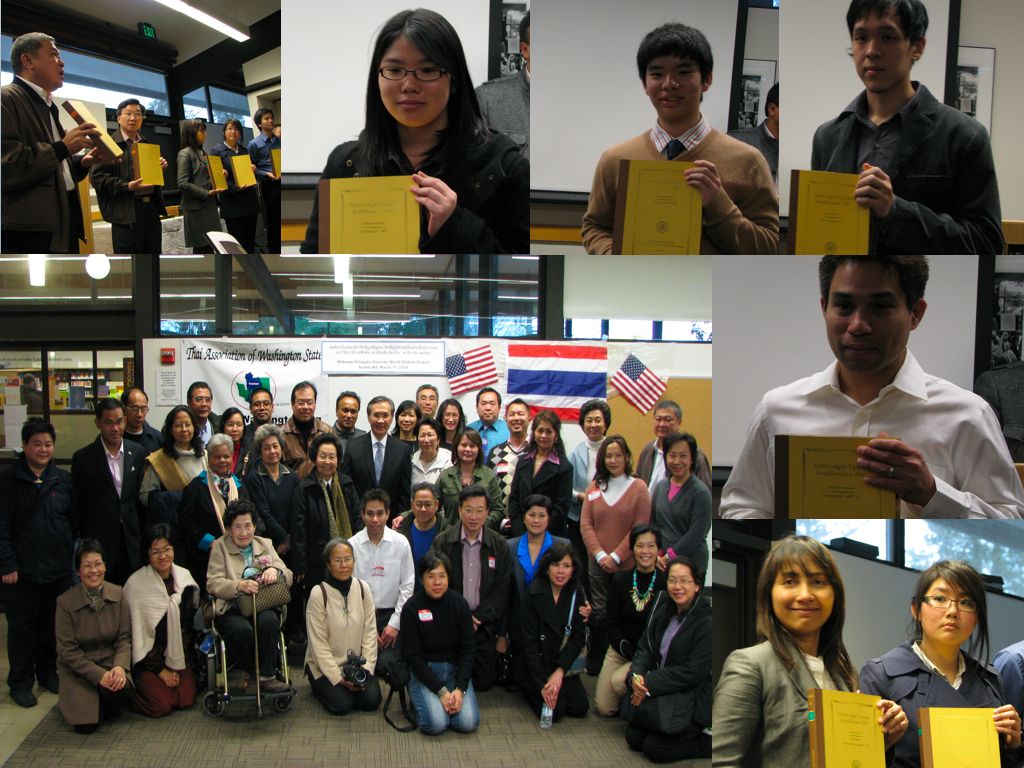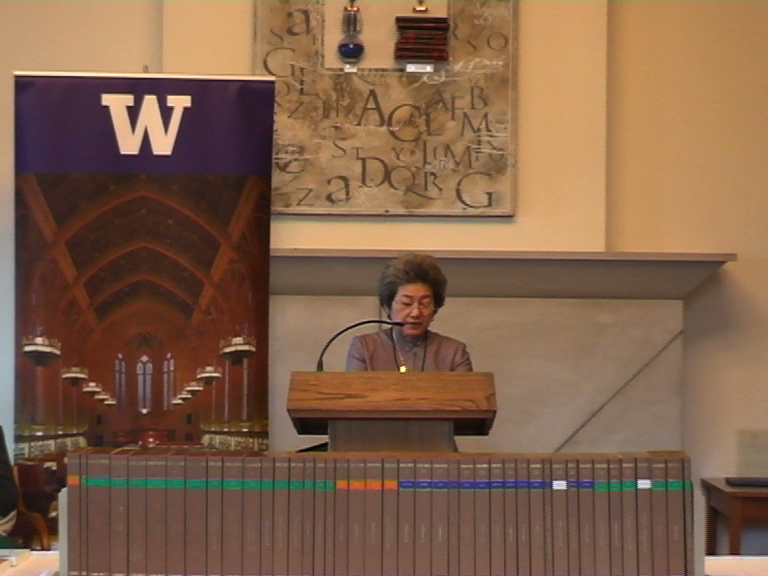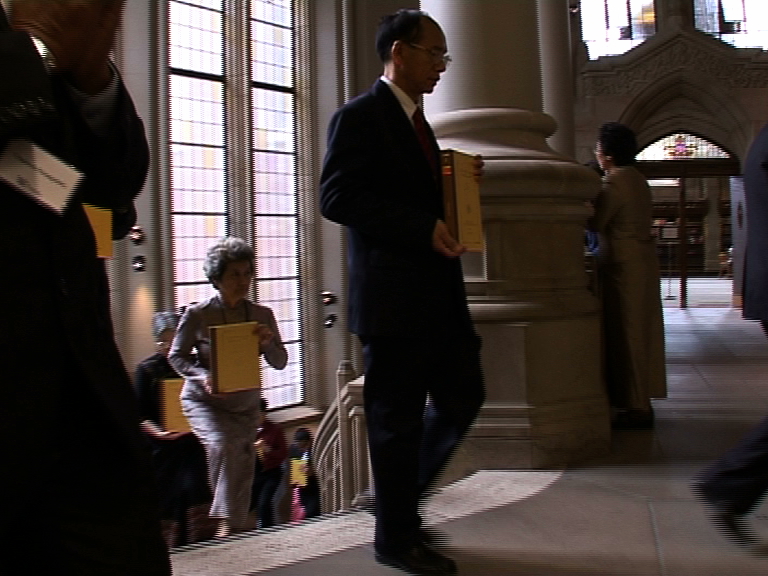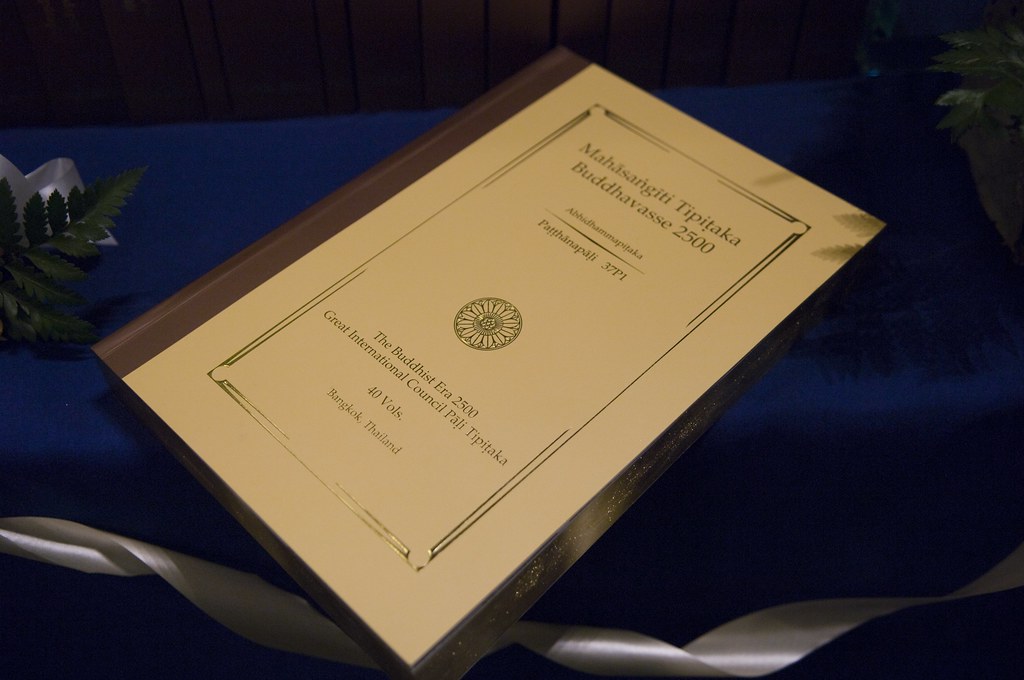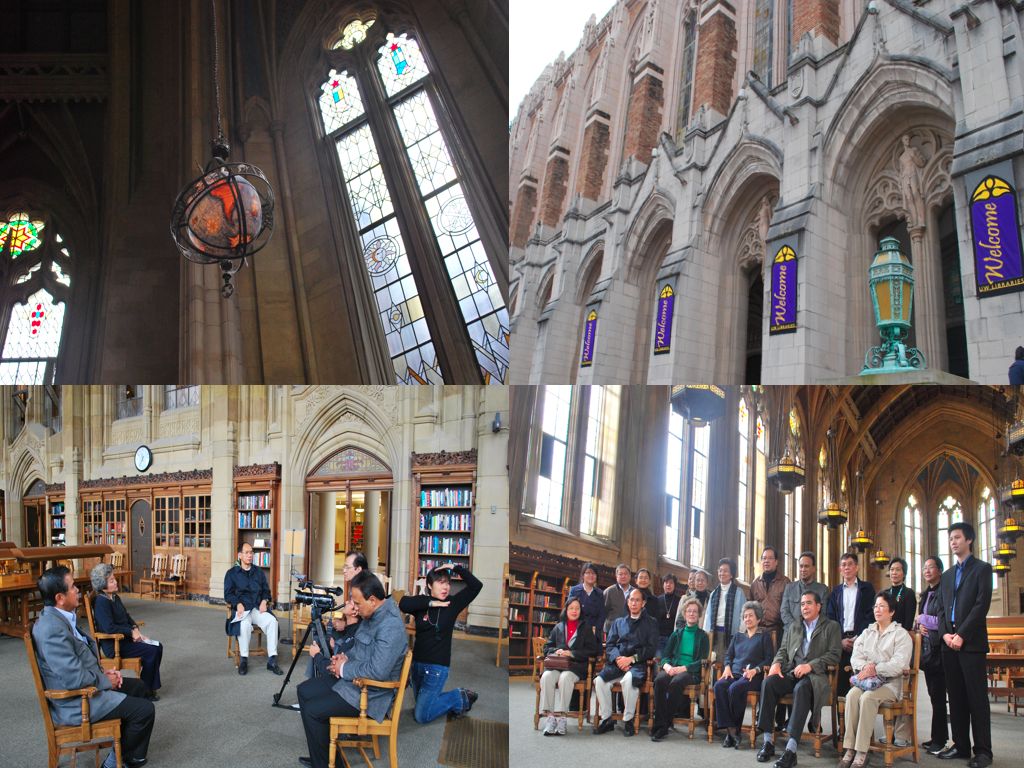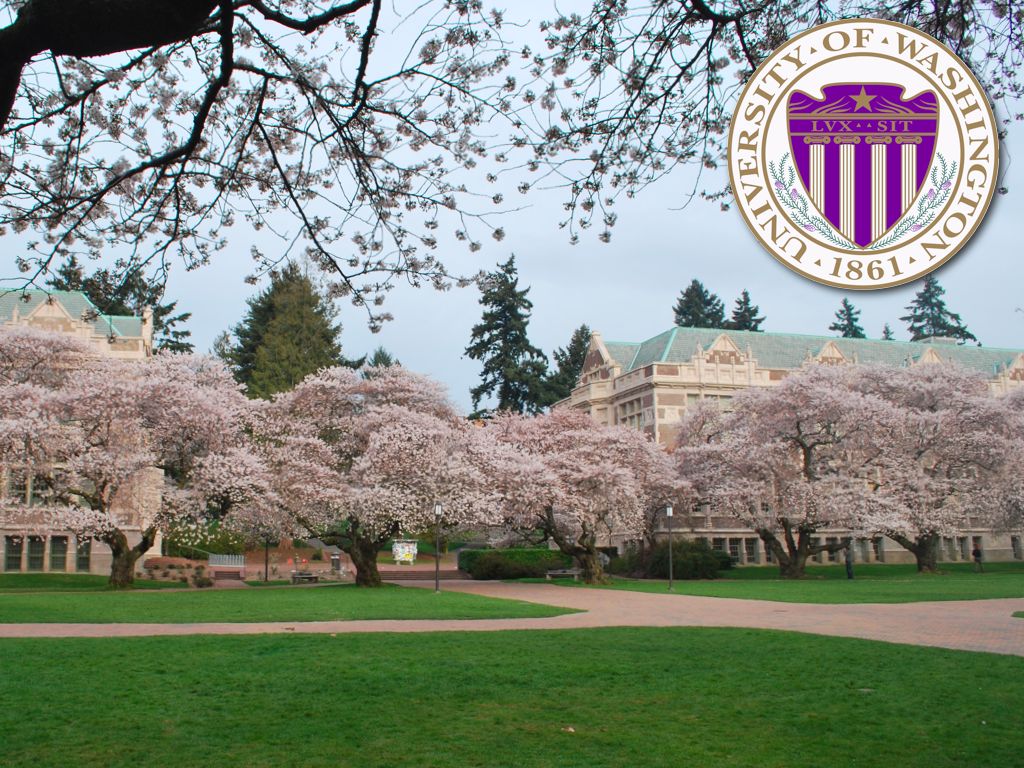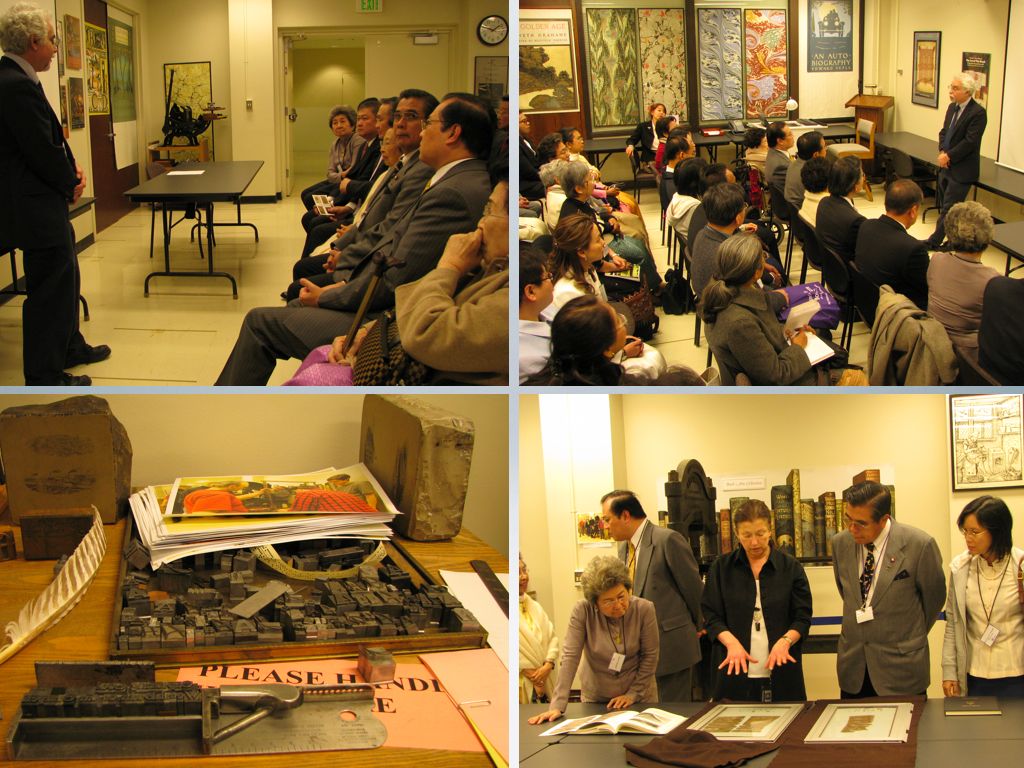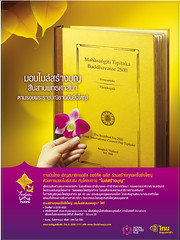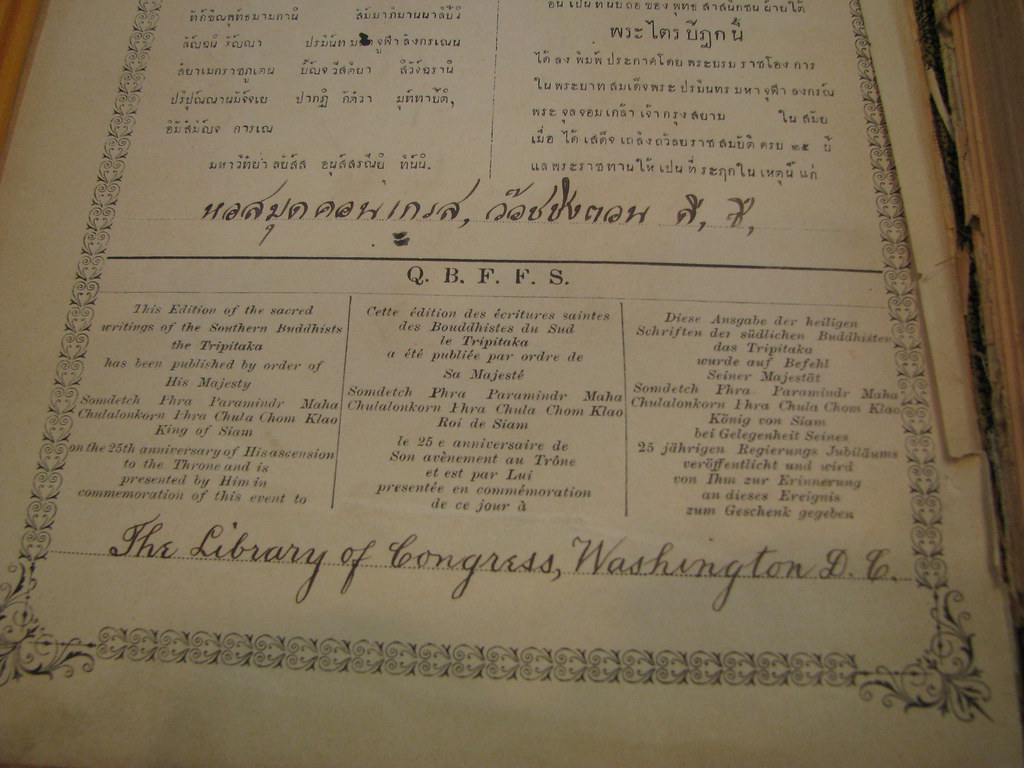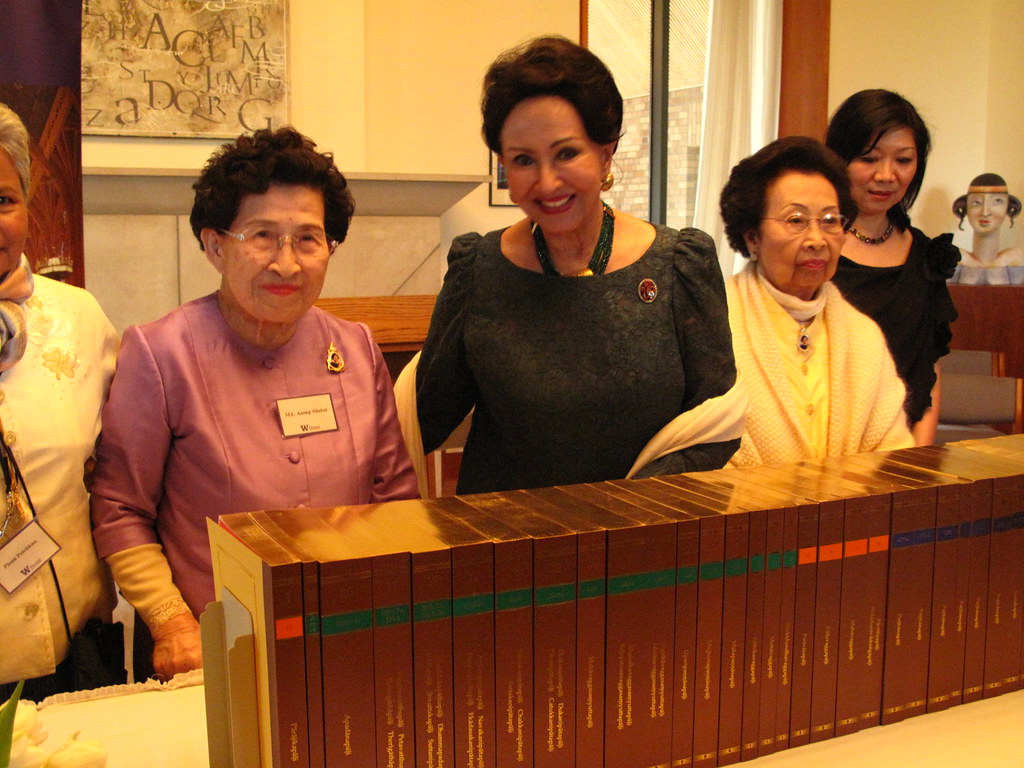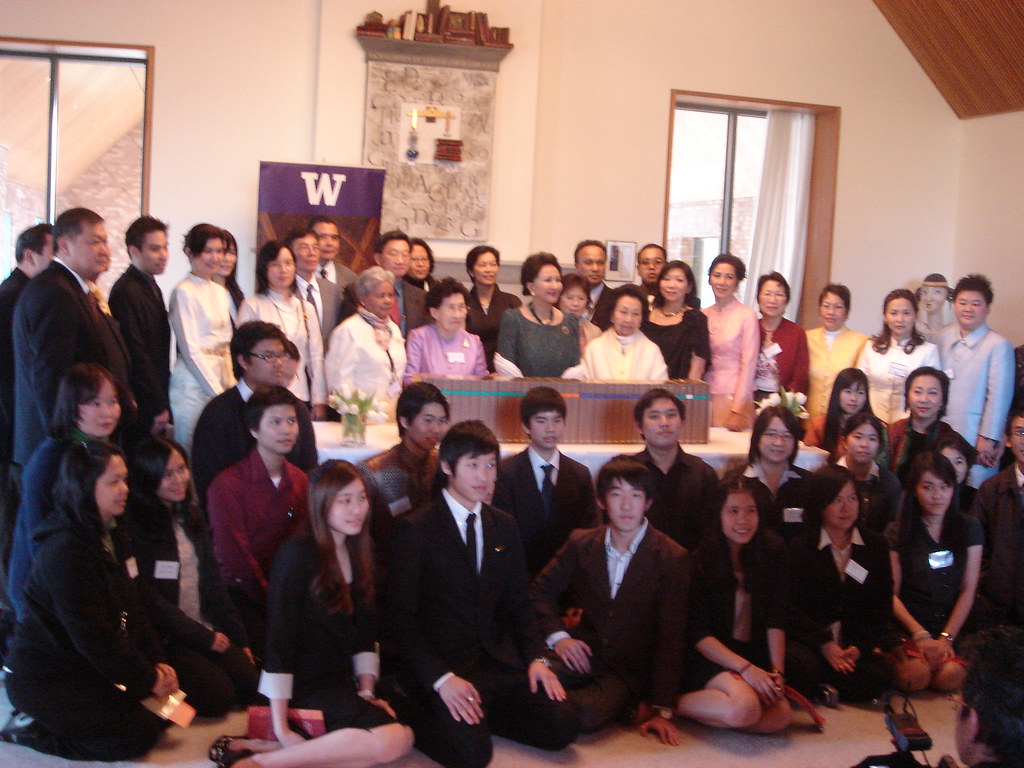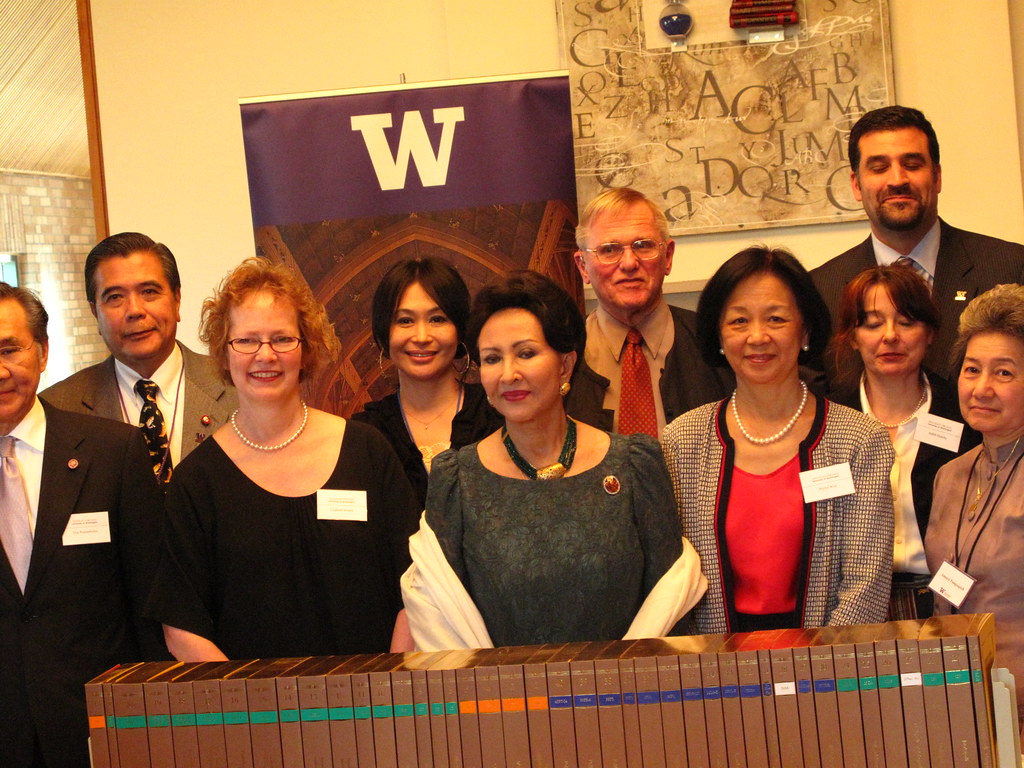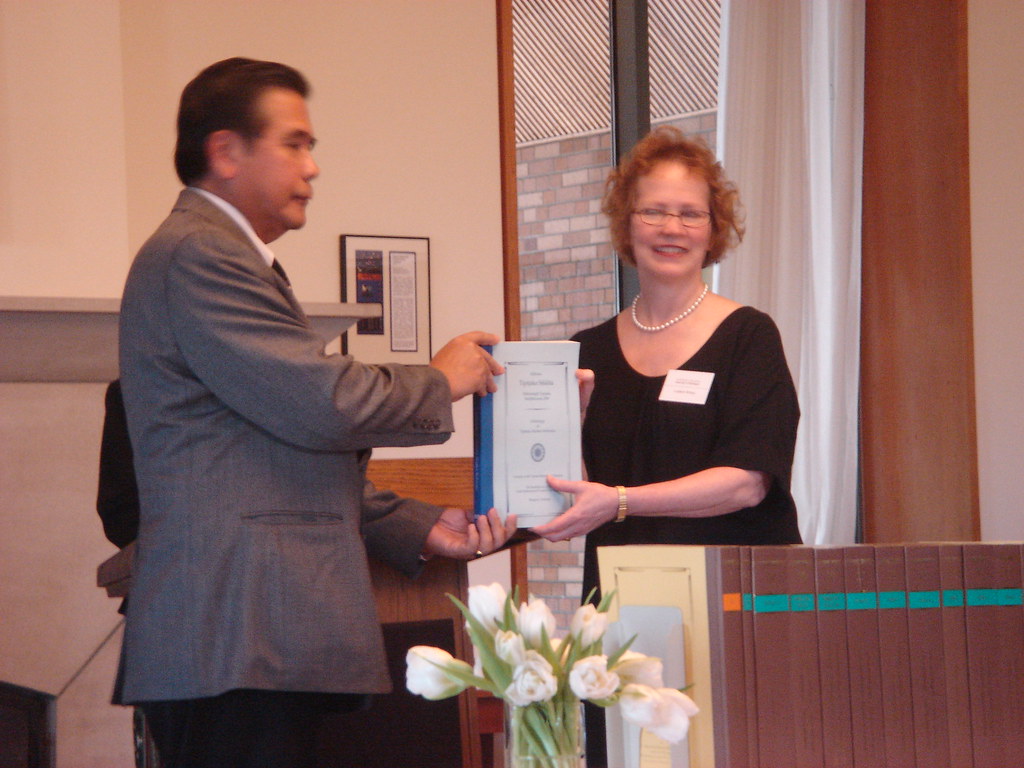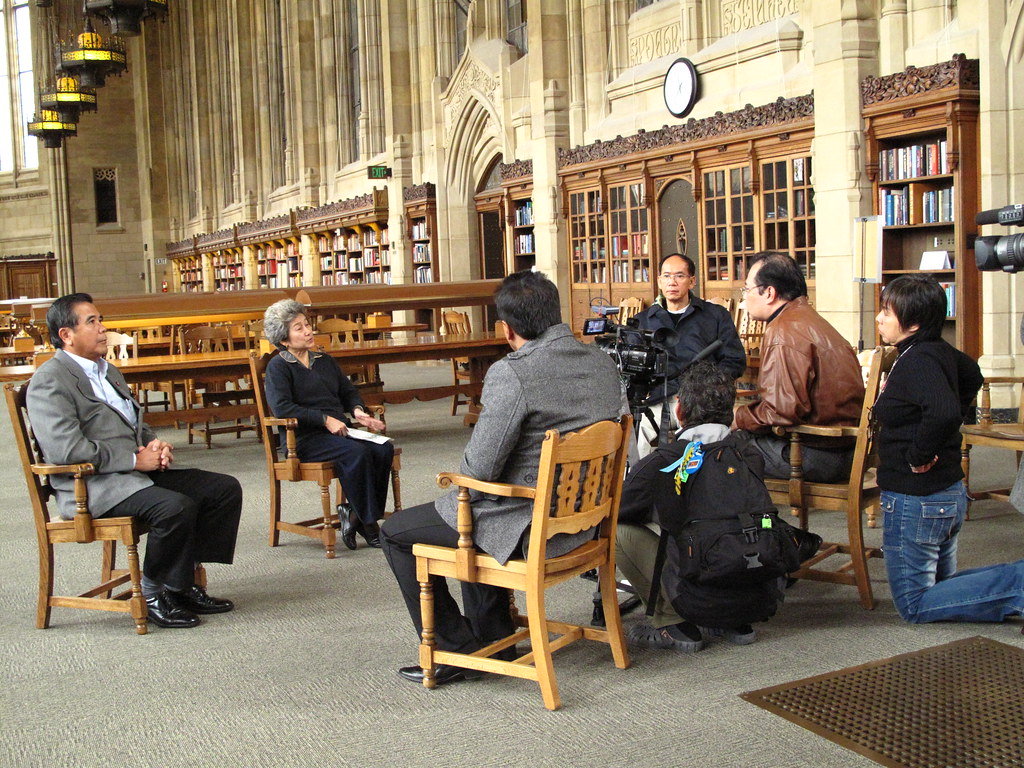Keynote Speech
by
Professor Keyes
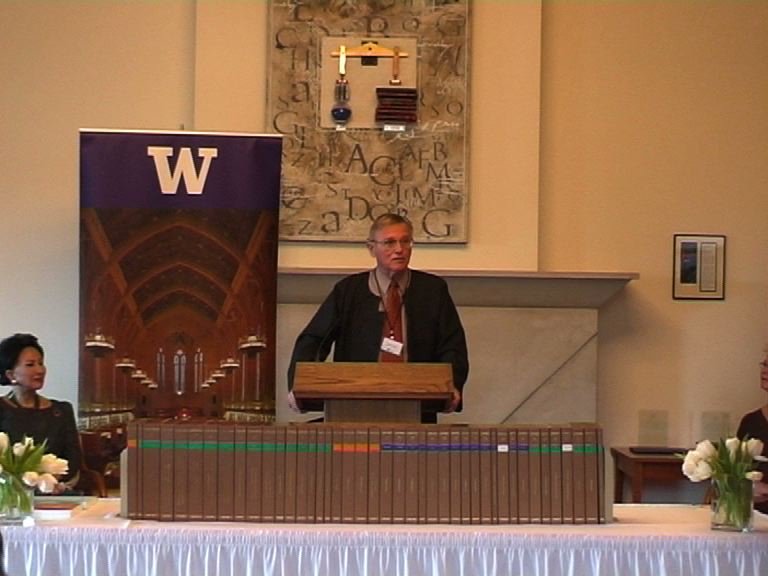
Mr. Suradhaj (สุรธัช), and all members of the Thai delegation
It is a great honor that you have come to the University of Washington to present the World Tipiṭaka to our Libraries.
Although the link between the University and Thailand may not date back to 1895, it does have a long and significant history.
2010 is the hundredth anniversary of Asian Studies at the University, a field that today is under the auspices of the Jackson School of International Studies and the Department of Asian Languages and Literature.
Thai language was first taught at the University of Washington in the 1950s under the direction of Professor Li Fang-kuei, a distinguished linguist who specialized on languages in China and Southeast Asia. The University of Washington has offered Thai instruction ever since, and is one of a handful of universities in America to have such a long record of Thai language instruction. We are fortunate to have Dr. Wiworn Kesavatana-Dohrs continuing this role.
In the 1950s Thai students began to come to the University of Washington from Thailand for the first time. Among the first Thai to receive PhDs here were Dr. Deb Menasveta (เทพเมนะเศวต) in fisheries and Dr. Sanga Sabhsri in forestry, both of whom went on to have very distinguished careers. I know that the late Dr. Sanga would have been very pleased with this event today as he was a devout Buddhist and we are delighted that Dr. Deb is represented here today by Dr. Piamsak, his son.
I personally decided to join the faculty of the University in 1965 because I felt confident that given the commitment to instruction in Thai and in Asian studies more generally as well as the attraction of Thai students to the university that this would be an excellent place to promote Thai studies. There have been a few ups and downs from time to time, but my early faith has clearly been realized.
During my long tenure at the University, I have been very fortunate to recruit, find support for and see through to completion of their PhD programs almost a dozen students from Thailand. Ajarn Amara Pongsapich, the director of the Thai Human Rights Commission and former dean of the Faculty of Political Science at Chulalongkorn University who is here today, was the first and most distinguished of this group. These luksit are the legacy of which I am most proud.
When I first came to the University I found that the Libraries already had an embryonic collection of Western language materials on Thailand. I soon realized that the Libraries staff were very receptive to building a collection in Thai language materials as well as in other languages about Thailand. In each of the extended research trips I made to Thailand from the 1960s through the 1990s, I collected many works in Thai, most of which are now in the Libraries collection.
As the founding director of Southeast Asian studies at the University, I recognized that the development of collections on Southeast Asia, including Thailand, would be greatly enhanced if there were a position at the Libraries dedicated to this goal. We were fortunate first in receiving funding from the Luce Foundation for such a position and then even more fortunate in recruiting Dr. Judith Henchy, who has organized this event, to fill it.
Judith has recently secured funding from the US Department of Education for a project joint with the Maha Chakri Princess Sirindhon Center and Mahidol University’s Institute for Population and Social Research to develop a virtual archive, searchable in both Thai and English, of research materials on Thailand. Thus, the University of Washington Libraries is contributing to the development of Thai studies not only here, but also in Thailand itself.
I see the presentation of the collection of the World Tipiṭaka here today not only as an honor for the University of Washington Libraries, but as the capstone of UW’s long connection with Thailand. ขอบคุณมากฯ ครับ
